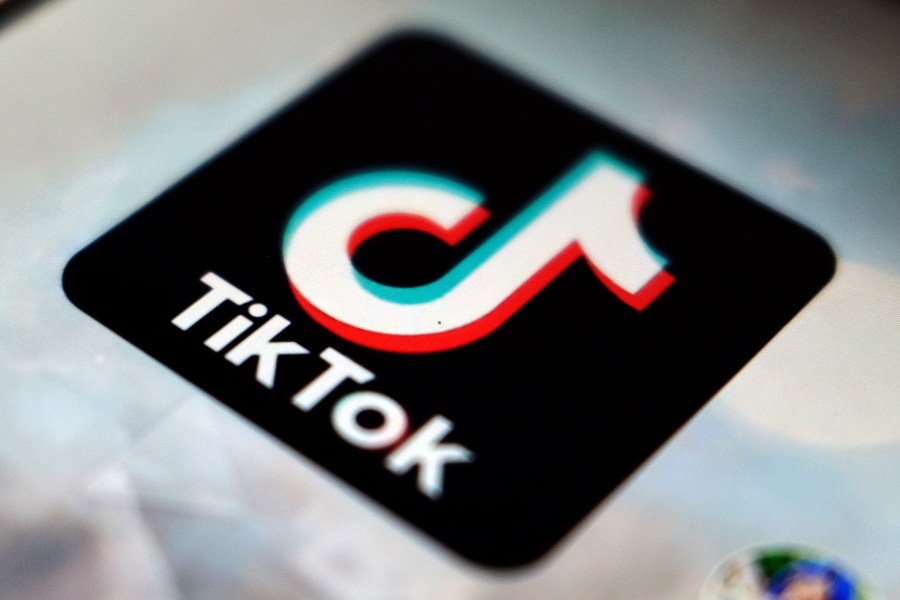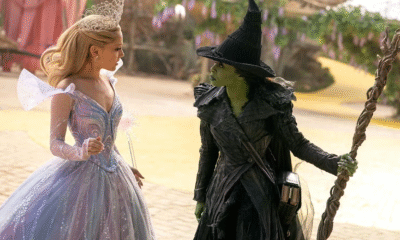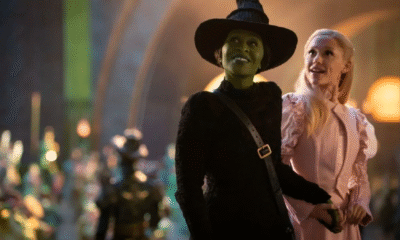Business
How the block on Montana’s TikTok ban could thwart other proposals on December 7, 2023 at 11:00 am Business News | The Hill

The defeat of Montana’s TikTok ban in federal court could deter other lawmakers from moving ahead with efforts to block the popular video sharing app facing bipartisan backlash.
There was mounting scrutiny over TikTok before Montana Gov. Greg Gianforte (R) signed the a law in May banning the app. House lawmakers grilled TikTok’s CEO in March as momentum and pressure built to ban the app. Dozens of states and the federal government followed up with narrower bans, restricting the TikTok from government-owned devices.
But a district judge’s ruling that Montana’s law violates users’ free speech could be a warning sign for state legislatures and Congress to avoid running into the same roadblock. Experts had already warned lawmakers that such bans would be difficult or nearly impossible to enforce.
Sarah Kreps, director of the Tech Policy Institute in the Cornell Brooks School of Public Policy, said the ruling feels like it may be a “final nail in the coffin” of proposals aimed at banning something as popular as TikTok.
“The judicial pushback against TikTok was always going to be an uphill battle, because of the constitutional questions about free speech, and Montana was a testbed for whether a ban could actually work,” Kreps said.
“What this shows is that courts take free speech very seriously,” she added.
When Montana became the first state to pass a law seeking to fully ban TikTok in May, it drew immediate pushback both from the company and civil rights groups that the law infringed on users’ free speech rights.
District Judge Donald Molloy agreed in his ruling last week, writing that “while there may be a public interest in protecting Montana consumers, the State has not shown how this TikTok bill does that.”
“Instead, [the bill] oversteps state power and infringes on the Constitutional rights of users and businesses,” he wrote.
Molloy blocked Montana’s TikTok ban, which was set to take effect in January, through a preliminary injunction.
“This ruling is very significant,” said Jenna Leventoff, senior policy counsel at the ACLU.
She said the ruling will make lawmakers looking to “directly or indirectly” ban TikTok, “think twice about the constitutionality of what they’re doing.”
Carl Szabo, vice president and general counsel at the tech industry group NetChoice, called it a “huge red light to every other state considering such action.”
“Not just because of it being bad policy, but because it is never going to take effect. And all it will do is force the state to waste taxpayer resources fighting legislation that lawmakers know to be unconstitutional,” he said.
TikTok is among the association members at NetChoice.
How does this impact other potential TikTok bans?
Lawmakers have proposed versions of bills that sought to ban TikTok since the start of the year based on concerns about ByteDance, its China-based parent company.
Congressional critics of TikTok argue that the app threatens national security by giving a Chinese company access to sensitive personal data from American users, which could then be shared with the Chinese government. TikTok has pushed back on such allegations.
House and Senate Republicans introduced bills that aimed to ban the use of TikTok broadly. Those efforts were met with criticism from Democrats, but a bipartisan proposal was introduced in March that seemingly faired a better chance at gaining broad coalition of support.
Sens. Mark Warner (D-Va.) and John Thune (R-S.D.) introduced the RESTRICT Act, which would give the Commerce Department the ability to identify and mitigate risks posed by technology linked to foreign adversaries, including China. The bill would ultimately give the administration the power to ban such apps, as well.
Warner spokesperson Rachel Cohen said the ruling “just demonstrates the need for a comprehensive, national solution to address foreign technology threats that won’t be struck down by the courts,” Cohen said in an email.
Leventoff, though, said the RESTRICT Act would likely face a similar fate in court if used to ban TikTok.
“If the Secretary of Commerce uses that extremely broad new authority to ban TikTok, a court would find that ban unconstitutional,” she said.
“That First Amendment analysis is going to happen, no matter what avenue the government uses to ban TikTok,” she added.
Szabo noted that when former President Trump tried to ban TikTok through an executive order in 2020 he “collided with the same limitation — the First Amendment.”
“What the judge made clear here is that just like it’s impossible to drive from New York City to London, it’s impossible to enact this type of ban on speech without violating the First Amendment,” Szabo said.
The state of Montana has not said whether it will attempt to appeal the decision to the federal Court of Appeals.
Emily Cantrell, a spokesperson for Montana Attorney General Austin Knudsen (R), said “this is a preliminary matter at this point” and the state is “weighing our options.”
“The judge indicated several times that the analysis could change as the case proceeds and the State has the opportunity to present a full factual record. We look forward to presenting the complete legal argument to defend the law that protects Montanans from the Chinese Communist Party obtaining and using their data,” Cantrell said in a statement.
A TikTok spokesperson said the company is “pleased the judge rejected this unconstitutional law and hundreds of thousands of Montanans can continue to express themselves, earn a living, and find community on TikTok.”
What about TikTok bans on government devices?
Although Montana is the only state to pass a full ban on TikTok, other states and the federal government have put in place more narrow bans on the app on government owned devices.
George Wang, staff attorney at the Knight First Amendment Institue at Columbia University, said that although the ruling is about Montana’s law, it could persuade other states considering their own bans, or even ones with narrower bans, to “drop those efforts.”
“While the ruling is specific to Montana, it’s still a serious thing that a federal court, the first federal court to consider these bans, has indicated that at least the categorical ban likely violates the First Amendment,” Wang said.
The Knight First Amendment Institute is challenging Texas’s TikTok ban on government devices on behalf of the Coalition for Independent Technology Research, citing how the ban applies to faculty in the state’s public universities.
“Whether the other states or Biden administration kind of take this in, remains to be seen, but it is a significant thing that the first federal court to address it has ruled the way it did,” Wang said.
The narrower bans, though, may fare better in court given the authority governments have.
“I think that that’s a separate question because governments can take measures more narrowly that they deem to be in the national security interest,” Kreps said.
Szabo likened the government device bans to limitations a private company has on what websites its employees can access.
“It is one thing for a business to tell its employees what they can and can’t do on the company devices. It’s a completely different thing for the government to come in and tell private citizens what they can and can’t do on their own devices,” he said.
Even if a government ban on TikTok were allowed to proceed, though, experts have pointed out technical difficulties of enforcing a ban based on loopholes that would allow users to gain access to the platform.
Kreps said that could also keep lawmakers from pushing forward bans.
“I think [it’s] worse than inaction to implement a policy that becomes farcical because no one will comply with it,” she said.
Technology, Business The defeat of Montana’s TikTok ban in federal court could deter other lawmakers from moving ahead with efforts to block the popular video sharing app facing bipartisan backlash. There was mounting scrutiny over TikTok before Montana Gov. Greg Gianforte (R) signed the a law in May banning the app. House lawmakers grilled TikTok’s CEO in March as…
Business
Google Accused Of Favoring White, Asian Staff As It Reaches $28 Million Deal That Excludes Black Workers

Google has tentatively agreed to a $28 million settlement in a California class‑action lawsuit alleging that white and Asian employees were routinely paid more and placed on faster career tracks than colleagues from other racial and ethnic backgrounds.
- A Santa Clara County Superior Court judge has granted preliminary approval, calling the deal “fair” and noting that it could cover more than 6,600 current and former Google workers employed in the state between 2018 and 2024.

How The Discrimination Claims Emerged
The lawsuit was brought by former Google employee Ana Cantu, who identifies as Mexican and racially Indigenous and worked in people operations and cloud departments for about seven years. Cantu alleges that despite strong performance, she remained stuck at the same level while white and Asian colleagues doing similar work received higher pay, higher “levels,” and more frequent promotions.
Cantu’s complaint claims that Latino, Indigenous, Native American, Native Hawaiian, Pacific Islander, and Alaska Native employees were systematically underpaid compared with white and Asian coworkers performing substantially similar roles. The suit also says employees who raised concerns about pay and leveling saw raises and promotions withheld, reinforcing what plaintiffs describe as a two‑tiered system inside the company.
Why Black Employees Were Left Out
Cantu’s legal team ultimately agreed to narrow the class to employees whose race and ethnicity were “most closely aligned” with hers, a condition that cleared the path to the current settlement.

The judge noted that Black employees were explicitly excluded from the settlement class after negotiations, meaning they will not share in the $28 million payout even though they were named in earlier versions of the case. Separate litigation on behalf of Black Google employees alleging racial bias in pay and promotions remains pending, leaving their claims to be resolved in a different forum.
What The Settlement Provides
Of the $28 million total, about $20.4 million is expected to be distributed to eligible class members after legal fees and penalties are deducted. Eligible workers include those in California who self‑identified as Hispanic, Latinx, Indigenous, Native American, American Indian, Native Hawaiian, Pacific Islander, and/or Alaska Native during the covered period.
Beyond cash payments, Google has also agreed to take steps aimed at addressing the alleged disparities, including reviewing pay and leveling practices for racial and ethnic gaps. The settlement still needs final court approval at a hearing scheduled for later this year, and affected employees will have a chance to opt out or object before any money is distributed.
H2: Google’s Response And The Broader Stakes
A Google spokesperson has said the company disputes the allegations but chose to settle in order to move forward, while reiterating its public commitment to fair pay, hiring, and advancement for all employees. The company has emphasized ongoing internal audits and equity initiatives, though plaintiffs argue those efforts did not prevent or correct the disparities outlined in the lawsuit.
For many observers, the exclusion of Black workers from the settlement highlights the legal and strategic complexities of class‑action discrimination cases, especially in large, diverse workplaces. The outcome of the remaining lawsuit brought on behalf of Black employees, alongside this $28 million deal, will help define how one of the world’s most powerful tech companies is held accountable for alleged racial inequities in pay and promotion.
Business
Luana Lopes Lara: How a 29‑Year‑Old Became the Youngest Self‑Made Woman Billionaire

At just 29, Luana Lopes Lara has taken a title that usually belongs to pop stars and consumer‑app founders.
Multiple business outlets now recognize her as the world’s youngest self‑made woman billionaire, after her company Kalshi hit an 11 billion dollar valuation in a new funding round.
That round, a 1 billion dollar Series E led by Paradigm with Sequoia Capital, Andreessen Horowitz, CapitalG and others participating, instantly pushed both co‑founders into the three‑comma club. Estimates place Luana’s personal stake at roughly 12 percent of Kalshi, valuing her net worth at about 1.3 billion dollars—wealth tied directly to equity she helped create rather than inheritance.

Kalshi itself is a big part of why her ascent matters.
Founded in 2019, the New York–based company runs a federally regulated prediction‑market exchange where users trade yes‑or‑no contracts on real‑world events, from inflation reports to elections and sports outcomes.
As of late 2025, the platform has reached around 50 billion dollars in annualized trading volume, a thousand‑fold jump from roughly 300 million the year before, according to figures cited in TechCrunch and other financial press. That hyper‑growth convinced investors that event contracts are more than a niche curiosity, and it is this conviction—expressed in billions of dollars of new capital—that turned Luana’s share of Kalshi into a billion‑dollar fortune almost overnight.
Her path to that point is unusually demanding even by founder standards. Luana grew up in Brazil and trained at the Bolshoi Theater School’s Brazilian campus, where reports say she spent up to 13 hours a day in class and rehearsal, competing for places in a program that accepts fewer than 3 percent of applicants. After a stint dancing professionally in Austria, she pivoted into academics, enrolling at the Massachusetts Institute of Technology to study computer science and mathematics and later completing a master’s in engineering.
During summers she interned at major firms including Bridgewater Associates and Citadel, gaining a front‑row view of how global macro traders constantly bet on future events—but without a simple, regulated way for ordinary people to do the same.

That realization shaped Kalshi’s founding thesis and ultimately her billionaire status. Together with co‑founder Tarek Mansour, whom she met at MIT, Luana spent years persuading lawyers and U.S. regulators that a fully legal event‑trading exchange could exist under commodities law. Reports say more than 60 law firms turned them down before one agreed to help, and the company then spent roughly three years in licensing discussions with the Commodity Futures Trading Commission before gaining approval. The payoff is visible in 2025’s numbers: an 11‑billion‑dollar valuation, a 1‑billion‑dollar fresh capital injection, and a founder’s stake that makes Luana Lopes Lara not just a compelling story but a data point in how fast wealth can now be created at the intersection of finance, regulation, and software.
Business
Harvard Grads Jobless? How AI & Ghost Jobs Broke Hiring

America’s job market is facing an unprecedented crisis—and nowhere is this more painfully obvious than at Harvard, the world’s gold standard for elite education. A stunning 25% of Harvard’s MBA class of 2025 remains unemployed months after graduation, the highest rate recorded in university history. The Ivy League dream has become a harsh wakeup call, and it’s sending shockwaves across the professional landscape.

Jobless at the Top: Why Graduates Can’t Find Work
For decades, a Harvard diploma was considered a golden ticket. Now, graduates send out hundreds of résumés, often from their parents’ homes, only to get ghosted or auto-rejected by machines. Only 30% of all 2025 graduates nationally have found full-time work in their field, and nearly half feel unprepared for the workforce. “Go to college, get a good job“—that promise is slipping away, even for the smartest and most driven.
Tech’s Iron Grip: ATS and AI Gatekeepers
Applicant tracking systems (ATS) and AI algorithms have become ruthless gatekeepers. If a résumé doesn’t perfectly match the keywords or formatting demanded by the bots, it never reaches human eyes. The age of human connection is gone—now, you’re just a data point to be sorted and discarded.
AI screening has gone beyond basic qualifications. New tools “read” for inferred personality and tone, rejecting candidates for reasons they never see. Worse, up to half of online job listings may be fake—created simply to collect résumés, pad company metrics, or fulfill compliance without ever intending to fill the role.
The Experience Trap: Entry-Level Jobs Require Years
It’s not just Harvard grads who are hurting. Entry-level roles demand years of experience, unpaid internships, and portfolios that resemble a seasoned professional, not a fresh graduate. A bachelor’s degree, once the key to entry, is now just the price of admission. Overqualified candidates compete for underpaid jobs, often just to survive.
One Harvard MBA described applying to 1,000 jobs with no results. Companies, inundated by applications, are now so selective that only those who precisely “game the system” have a shot. This has fundamentally flipped the hiring pyramid: enormous demand for experience, shrinking chances for new entrants, and a brutal gauntlet for anyone not perfectly groomed by internships and coaching.
Burnout Before Day One
The cost is more than financial—mental health and optimism are collapsing among the newest generation of workers. Many come out of elite programs and immediately end up in jobs that don’t require degrees, or take positions far below their qualifications just to pay the bills. There’s a sense of burnout before careers even begin, trapping talent in a cycle of exhaustion, frustration, and disillusionment.
Cultural Collapse: From Relationships to Algorithms
What’s really broken? The culture of hiring itself. Companies have traded trust, mentorship, and relationships for metrics, optimizations, and cost-cutting. Managers no longer hire on potential—they rely on machines, rankings, and personality tests that filter out individuality and reward those who play the algorithmic game best.
AI has automated the very entry-level work that used to build careers—research, drafting, and analysis—and erased the first rung of the professional ladder for thousands of new graduates. The result is a workforce filled with people who know how to pass tests, not necessarily solve problems or drive innovation.
The Ghost Job Phenomenon
Up to half of all listings for entry-level jobs may be “ghost jobs”—positions posted online for optics, compliance, or future needs, but never intended for real hiring. This means millions of job seekers spend hours on applications destined for digital purgatory, further fueling exhaustion and cynicism.
Not Lazy—Just Locked Out
Despite the headlines, the new class of unemployed graduates is not lazy or entitled—they are overqualified, underleveraged, and battered by a broken process. Harvard’s brand means less to AI and ATS systems than the right keyword or résumé format. Human judgment has been sidelined; individuality is filtered out.

What’s Next? Back to Human Connection
Unless companies rediscover the value of human potential, mentorship, and relationships, the job search will remain a brutal numbers game—one that even the “best and brightest” struggle to win. The current system doesn’t just hurt workers—it holds companies back from hiring bold, creative talent who don’t fit perfect digital boxes.
Key Facts:
- 25% of Harvard MBAs unemployed, highest on record
- Only 30% of 2025 grads nationwide have jobs in their field
- Nearly half of grads feel unprepared for real work
- Up to 50% of entry-level listings are “ghost jobs”
- AI and ATS have replaced human judgment at most companies
If you’ve felt this struggle—or see it happening around you—share your story in the comments. And make sure to subscribe for more deep dives on the reality of today’s economy and job market.
This is not just a Harvard problem. It’s a sign that America’s job engine is running on empty, and it’s time to reboot—before another generation is locked out.

 Entertainment4 weeks ago
Entertainment4 weeks agoWicked Sequel Disappoints Fans: Audience Verdict on For Good

 Entertainment4 weeks ago
Entertainment4 weeks agoAriana & Cynthia Say They’re in a ‘Non‑Demi Curious, Semi‑Binary’ Relationship… WTF Does That Even Mean?

 News4 weeks ago
News4 weeks agoMexico Bans Dophin Shows Nationwide

 Entertainment4 weeks ago
Entertainment4 weeks agoColombia’s ‘Doll’ Arrest: Police Say a 23-Year-Old Orchestrated Hits, Including Her Ex’s Murder

 Entertainment4 weeks ago
Entertainment4 weeks agoHow The Grinch Became The Richest Christmas Movie Ever

 Entertainment4 weeks ago
Entertainment4 weeks agoMiley Cyrus Is Engaged to Maxx Morando

 Business3 weeks ago
Business3 weeks agoLuana Lopes Lara: How a 29‑Year‑Old Became the Youngest Self‑Made Woman Billionaire

 News4 weeks ago
News4 weeks agoUS May Completely Cut Income Tax Due to Tariff Revenue






























